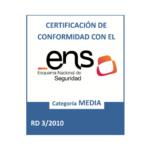What is a cookie?
A cookie is a harmless text file that is stored in your browser when you visit almost any web page. The usefulness of the cookie is that the web is able to remember your visit when you browse that page again. Although many people do not know cookies have been used for 20 years, when the first browsers for the World Wide Web appeared.
What is not a cookie?
It’s not a virus, not a Trojan or worm, not spam or spyware, nor does it open pop-up windows.
What information does a cookie store?
Cookies do not usually store sensitive information about you, such as credit card or bank details, photos, your ID or personal information, etc. The data stored are of a technical nature, personal preferences, content personalization, etc.
The web server does not associate you as a person but with your web browser. In fact, if you regularly browse with Internet Explorer and try browsing the same web with Firefox or Chrome you will see that the web does not realize that you are the same person because you are actually associating the browser, not the person.
What types of cookies exist?
Technical cookies: They are the most elementary and allow, among other things, to know when a human or an automated application is browsing, when an anonymous user and a registered one is surfing, basic tasks for the operation of any dynamic web.
Analysis cookies: They collect information about the type of browsing you are doing, the sections you use most, products consulted, time range of use, language, etc.
Advertising cookies: They show advertising based on your browsing, your country of origin, language, etc.
What are own and third-party cookies?
Own cookies are those generated by the page you are visiting, and those of third parties are those created by services or external providers such as Facebook, Twitter, Google, etc.
What happens if I disable cookies?
To help you understand the scope that disabling cookies may have, we show you some examples:
You may not share content from that website on Facebook, Twitter or any other social network.
The website will not be able to adapt the contents to your personal preferences, as is usually the case in online stores.
You will not be able to access the personal area of that website, such as My Account, My Profile or My Orders.
Online stores: You will not be able to make online purchases, they will have to be telephone or visiting the physical store if you have it.
It will not be possible to customize your geographical preferences such as time zone, currency or language.
The website will not be able to perform web analytics on visitors and web traffic, which will make it difficult for the web to be competitive.
You will not be able to write on the blog, upload photos, post comments, rate or score content. The web will also not be able to know if you are a human or an automated application that publishes spam.
Sector-specific advertising will not be displayed, which will reduce web advertising revenue.
All social networks use cookies, if you disable them you will not be able to use any social network.
Can cookies be deleted?
Sí. in addition to deleting, also blocking, generally or specifically for a specific domain.
To remove cookies from a website you need to go to the settings of your browser and there you can search for those associated with the domain in question and proceed to their removal.
Cookie settings for the most common browsers
Unless you have adjusted your browser settings, our system will create cookies as soon as you visit our Website. Please note that all Internet browsers allow this configuration to be changed. For more information on how to adjust your cookie settings you can consult the help of each browser by clicking on the link.
Cookies in Chrome Note: These steps may vary depending on the browser version:
Go to Settings or Preferences from the File menu or by clicking on the customization icon that appears at the top right.
You will see different sections, tap Show advanced options.
Go to Privacy, Content Settings.
Select All cookies and site data.
A list will appear with all cookies sorted by domain. To make it easier for you to find the cookies of a particular domain, enter partially or entirely the address in the Search for cookies field.
After this filter will appear on the screen one or several lines with the cookies of the requested web site. Now you just have to select it and press the X to proceed with its deletion.
Cookies whit Internet Explorer or Edge (can vary depending on browser version):
Go to Tools, Internet Options
Click on Privacy.
Move the slider to adjust the privacy level you want.
Cookies in Firefox follow these steps (they may vary depending on the browser version):
Go to Options or Preferences according to your operating system.
Click on Privacy.
In History choose Use a custom setting for the history.
You will now see the option Accept Cookies, you can enable or disable it according to your preferences.
Cookies in Safari for OSX take these steps (they may vary depending on the browser version):
Go to Preferences, then Privacy.
Here you will see the option Block cookies to adjust the type of blocking you want to perform.
Cookies for Android devices follow these steps (they may vary depending on the browser version):
Run the browser and press the Menu key, then the Settings key.
Update date: 15/09/2023
For any questions or inquiries: [email protected].
Copyright © BeOneSec Cybersecurity Solutions, S.L. All rights reserved.







